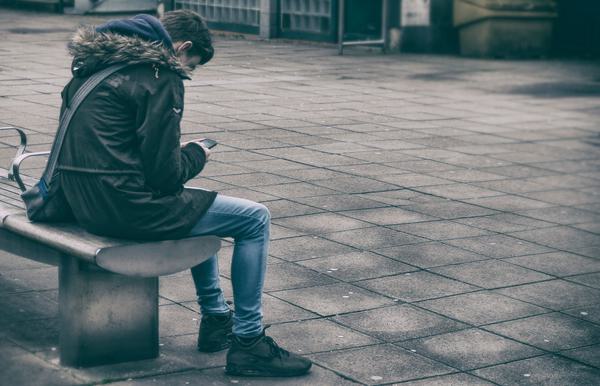In April 2019 Youthscape was awarded funding from the Co-op Foundation to run a research project with young people, exploring the links between youth loneliness and youth social action. Here’s what we found.
Open House
#OpenHouse is a programme run as part of Youthscape’s local work in Luton. Over eight weeks a group of 11-15 year olds learn to cook under the supervision of a professional chef, and work with our team to explore how to manage and understand loneliness.
After being taken to a restaurant themselves, the programme concludes with each group cooking and serving a three-course meal – ‘the banquet’ – to another group in the local community. While #OpenHouse is not a solution to loneliness, the aim is for each group to experience connection and hospitality and be empowered to share that with others.
The research project
In April 2019 Youthscape were awarded additional funding from the Co-op Foundation to run a co-research project with young people, exploring the links between youth loneliness and youth social action. Given the nature of #OpenHouse and the role of food in our local youth work, we wanted to focus our enquiry on cooking as a form of social action, and how this might relate to loneliness. We believe that making and eating meals can facilitate connection, but #OpenHouse is a short-term programme so we wanted to explore its impact, potential and how it could be developed.
The research question
Does learning to cook and then cooking for others help young people feel more connected and less lonely? If so, how?
The complete research report can be downloaded via the link in the right-hand sidebar.

The research process
The work unfolded over four Saturdays between June and November 2019, each day a mixture of team-building, eating together, training, research activities and fun.
As co-researchers, the 10 young people who worked with us were participants in the research process, not just the focus of enquiry. We thought carefully about their role, and how they would meaningfully shape the project from start to finish. Some of their main tasks are below.
"It’s not a one-off event if you keep thinking about it. It’s like a memory that you can keep re-living."
- Sharing and discussing their thoughts about youth loneliness and social action
- Working out some options for what we could research and deciding which was the best
- Being trained in asking questions, active listening, interviewing and analysis
- Conducting all 20 interviews themselves
- Reviewing our initial analysis and doing additional coding.
- Deciding how to share the research, making a video and planning a launch event.

Key findings
Confidence and connection
#OpenHouse helped young people develop the skills and confidence to cook a greater range of food. While many of them were using these new skills at home, others experienced challenges that meant they had not been able to cook as much as they would have liked.
Most young people told us that #OpenHouse had helped them feel more connected. Meeting new people, creating something as a team and sharing their experiences all helped young people feel less lonely. Some interviewees told us that their confidence to talk to people at school or in other contexts had improved as a result.
“On the banquet night, just having to get up early, starting to prepare, we were all rushing around. It was just watching how everyone reacted, interacted with each other. Compared to the first session we had, it was very much us working as a team. It was like we got to know each other and this is what we’re going to bring out to people, and it was kind of very satisfying, to know that we’d helped people and given them joy.”
We also learned that overcoming loneliness is not simple or quick. Relationships are dynamic – they shift and change, and not everyone had found new friendships or confidence.
“If you take a first look at it without actually talking to the person - or if you talk to the person they might not let on what is actually going on. So you might think ‘Oh maybe they're just lonely’, and try and help that. But it's a lot more complicated than that.”
Context for conversation
Most interviewees felt that cooking together more generally could help young people make new connections and reduce loneliness. Beyond being a shared activity, cooking and eating together creates a specific kind of context for conversation. Nevertheless, we need to understand the different reasons someone might feel lonely, and recognise that not everyone is ready or willing to talk about how they feel. The young people we spoke to felt that while cooking the banquet was a meaningful form of social action that benefitted the guests, they benefitted themselves more directly. For some, meeting new adults was intimidating, and they preferred to serve through cooking rather than making conversation.
Long-term opportunity
There is scope for us to create more opportunities for young people to cook for others and use their skills. But even if the banquet remains a one-off event, some interviewees argued that it could have ongoing influence through creating lasting memories or inspiring others to similar kinds of service.
The three areas where young people suggested we could improve #OpenHouse were: greater support to reflect on their experience/emotions and to practice new skills; creating contexts for ongoing connections and support and involving young people in decisions about what to cook.
What next?
We loved having an opportunity to recruit young people to be co-researchers. Their perspective, humour and creativity made it a much more interesting process, and strengthened our understanding of the impact of our work. We’re now applying what we’ve learned, and thinking about how else we can facilitate young people’s participation in our work as a result.

#OpenHouse is generously supported by the #iwill fund; a joint investment from The National Lottery Community Fund and the Department for Digital, Culture, Media and Sport (DCMS) and match funded by the Co-op Foundation. The #iwill Fund brings together a group of organisations who all contribute funding to embed meaningful social action into the lives of young people, to make a positive difference in their communities as well as develop their own skills and knowledge.




